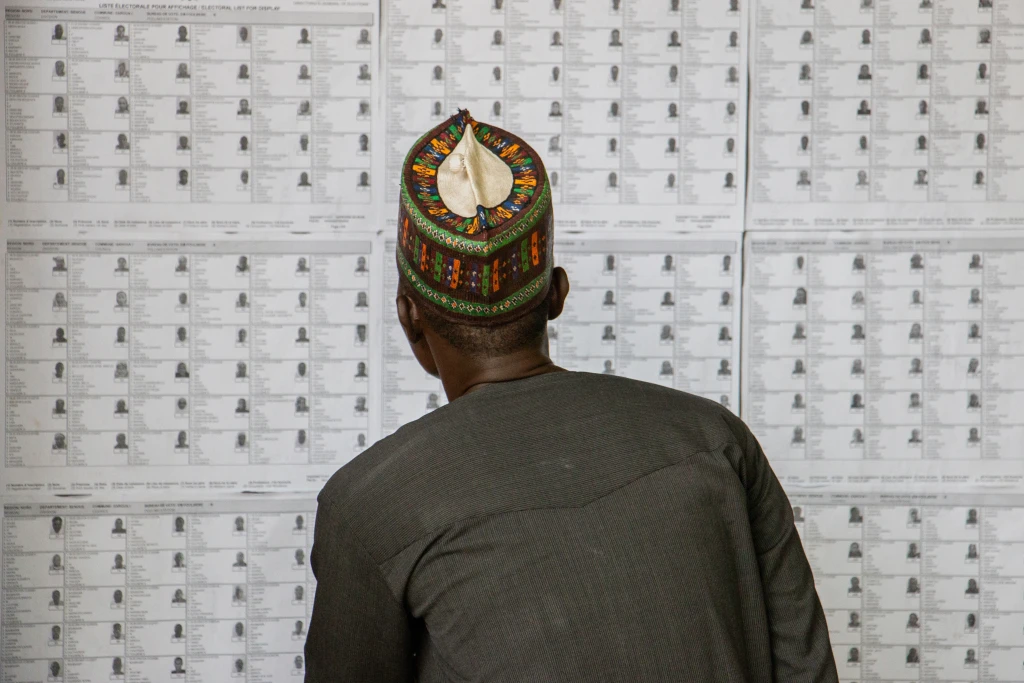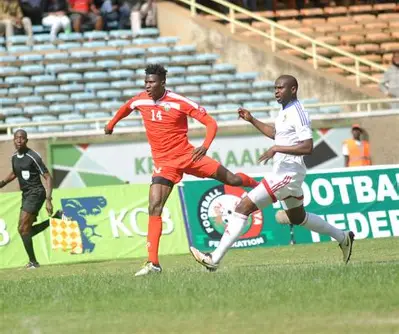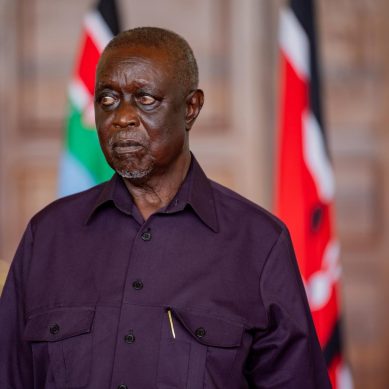
In my article ‘The Educated fools of Uganda’ I wrote that the term ‘education’ has been defined variously in different contexts. In a narrow sense, it is limited to formal instruction received in schools, colleges and universities.
So, anyone who goes to educational institutions to get degrees or to acquire academic qualifications is considered an educated person (Oweyegha-Afunaduula, 2024).
Albert P Rayan (2022) cited by Oweyegha-Afunaduula (2024) writes in his article ‘What is a truly educated Person?’ that education is not the mere acquisition of knowledge and skills. Instead, it is about thinking creatively and critically, and responding positively to society’s challenges.
In my article titled ‘Transition from Disciplinarily – Educated to Transdisciplinarily, educated persons (Oweyegha-Afunaduula, 2022) I wrote thus: ‘Who is an educated person?’ is a question that seemed to be settled. We almost certainly agree that an educated person has gone through pre-primary, primary, secondary and advanced school and then joined university and earned one or more degrees. Anyone who did not was considered uneducated. Almost, unsurprisingly, such an educated individual was just disciplined”.
Ssenyonjo Usher, a former Ugandan teacher cited by QUORA four years ago, says that subjects to be taught in the syllabus are politically vetoed by the National Resistance Movement (NRM) regime. For example, humanity subjects that steer logical thinking that leads to critiquing the government have slowly been discouraged and later stripped off from the secondary school syllabus, that is, political education etcetera.
Educational reforms in Uganda since 1986, that culminated in the introduction of Universal Primary Education (UPE) in 1996, attempted to reestablish centralised control of education and, by implication, reverse the trend toward the unregulated involvement in education of both of parents and non-state institutions (Nansozi Muwanga, 2000). These reforms ran counter to existing participatory patterns of education financing and administration, as well as to the political philosophy underpinning the NRM government, that is, democratisation and popular participation in decision-making and service delivery.
The inherent tension between educational reforms and political goals raised an important question that was central to Nansozi Muwanga’s study: Can the state strengthen its administrative control over education and also preserve and extend local participation? (Nansozi Muwanga, 2000).
Uganda has seen a significant increase in access to primary education since 1996 but without an increase in quality learning (Anne Mette and Nansozi Muwanga, 2019). Besides, Critical thinking and reasoning, which are the hallmark of education, have been meteorically falling, cumulatively generating a population in which the products of the education system rely more on emotions than on critical thinking and reasoning from bottom to top.
Currently the Uganda Government is engaged in a review of the education policy. It has set up what it calls Uganda Education Review Commission (UERC) whose members are mostly academics and whose chairman is a retired soldier of the UPDF and a former Minister of Education, Amanya Mushega. Kimulya and Sukutha (2024) have addressed the power of politics on educational policy reforms and implementation in Uganda from 1894-2020. It is timely to think of what reforms a regime in power is aiming at.
In Uganda, several educational reforms have been made following several education review commissions right from colonial times to post-independent Uganda. The latest of these is the National Teacher Policy (NTP) aimed at professionalizing the teaching profession to levels comparable with other professions like medicine, engineering, legal and accounting, among others (Ministry of Education 2019).
These policy reforms have not functioned as envisaged due to political influences and disengagement of key stakeholders in education. We are also aware that the government has decreed that all nursery school, primary school and secondary school teachers have degrees. At the university level, government has more or less devalued the arts and social sciences, preferring natural sciences and related professions. Natural sciences are paid far more than the lecturers in the arts and social sciences.
One may not be off the mark to think that these political choices in education will be institutionalised by the Uganda Education Review Commission (UERC). Tone school of thought believes the aim is to enhance political control of the regime in power over the educational processes and the products thereof. In the past, teacher throughout the education system used to be the voice and mirror of society, clarifying, articulating and interpreting complex issues and deciphering complex problems for society.
However, what is happening in the education sector seems to point to the determination of the regime in power to conquer and control the knowledge workers in schools and universities by creating inferiority complex in them and impoverishing them by giving them majority of them meaningless remunerations for their work. People suffering from inferiority complex and poverty are unlikely to allocate time to clarifying, articulating and interpreting phenome for society. They are likely to withdraw into inconsequential. They will not challenge the powers that be. They will be integrated and unlikely to achieve unity while confronted with challenges, problems and issues common to all of them.
If a regime wants to conquer and control the education sector in its favour and multiply its political resources, then total capture of the education system is the way forward. If a political or politico-military regime, can make the knowledge workers to focus on small things of survival, or to concentrate on academicism and scholasticism instead of building individual and collective intellectual capital, then it will be able to build its political capital undisturbed by the knowledge workers, especially in the arts and social sciences, where questioning of rulers in Uganda and the whole world has been most pronounced since the natural scientists allocate far more time and energy building careerism that questioning the rulers.
Under such sociopolitical conditions, it will be, and it has been, much easier to covert the knowledge workers into political or security agents to earn more money and undermine their academia for the benefit of power. This explains why today it is much more difficult to agree on anything of general interest that during our time in the 1990s and early millennium.
In February 2024, I wrote a short unpublished article “Politics of Education in Uganda”. This particular article I am writing is an extension of what I said in the previous article with similar title.
In the previous article I wrote:
A Minister of Education is politically responsible for education in Uganda: technical, or non-technical, academic or non-academic, nursery, primary, secondary and university education. The minister ensures that that there is justice and quality in education. Since June 6, 2016, President Museveni’s wife, Janet Kataha Museveni has been the minister of education. Under her reign there has been a mushrooming of nursery, primary, secondary, technical and university institutions. We have witnessed over-privatisation, massification, stratification and marketisation of education, accompanied by decline in justice and quality in the country’s education system. Traditional secondary schools have meteorically lost their educational leadership. It is during the reign of Kataha Museveni in education that politics has taken centre stage in the sector. It is also during her reign that so many politicians of the ruling party and military personnel have sought and succeeded in acquiring fake qualifications for higher education. It is much easier these days than in the past to acquire a bogus qualification. It will not be surprising that in coming years educational institutions are headed by military men and/or women”.
When I heard that the minister of education had established the UERC, I wrote a letter to the chairman of the commission, emphasising the need to break away from disintegrative to integrative education system. I said that this was the way forward for education in the whole world in the 21st century. Consequently, I said, we needed educational reforms to produce graduates that can work in a team and who are future ready professional and can engage in critical thinking and reasoning in a complex century in which emotional responses to issue such as education will be a disadvantage to our graduates.
I capped all this by emphasizing the need to develop an education system for the 21st century in which alternative knowledge production systems are nurtured and the unjust superiority of disciplines is challenged. I put the alternative knowledge systems as interdisciplinarity, crossdisciplinarity, trans-disciplinarity and extra-disciplinarity (or non-disciplinarity). However, if the political aim of the regime in power is to continue to disintegrate society to ensure domination and control of the people by a small ethnically oriented group empower, then then alternative systems of knowledge production will have no place in Uganda, of course to the disadvantage of the country and its people.
Therefore, from now on the politics of education in Uganda should be a politics of integration, not integration and a politics of freedom of thought not control of thought, throughout the education system. We need students, teachers and lecturers at all levels of education who are free to think integratively and to see thinking from more than one angle in a multidimensional, multifunctional world. We shall be able to advance science in new directions through the integration experience (Oweyegha-Afunaduula, 2023).
In my article ‘The Death of Uganda’s Education and the Rise of Castesm’ (Oweyegha-Afunaduula, 2024) I wrote:
The political process has produced cadres that are controlling the electoral, legislative, executive and judicial process, to ensure the results, laws, policies, and judicial processes service and sustain the kind of discriminatory education system and discriminatory political system being built by the First Family to the same end: castem in education and the whole society”. I added, “It will be interesting to see if the commission [UERC] will propose a new education policy to revitalize Uganda’s education system, remove centrality of castesm, reintroduce introduce justice in it and promote despecialisation at our universities to enhance relevance and employability of the graduates in a fast-changing Century in knowledge integration and reintegration”.
If we allow alternative knowledge production system to flourish in our education system discriminatory education, which is politically driven, will be a thing of the past. We shall no longer be committed to pure science, which belong to the 19th and 20th centuries, and discourages pursuit of the unity of the sciences.
For God and my country.
- Tell report / By Oweyegha-Afunaduula / Environmental Historian and Conservationist Centre for Critical Thinking and Alternative Analysis (CCTAA), Seeta, Mukono, Uganda.
About the Centre for Critical Thinking and Alternative Analysis (CCTAA)
The CCTAA was innovated by Hyuha Mukwanason, Oweyegha-Afunaduula and Mahir Balunywa in 2019 to the rising decline in the capacity of graduates in Uganda and beyond to engage in critical thinking and reason coherently besides excellence in academics and academic production. The three scholars were convinced that after academic achievement the world outside the ivory tower needed graduates that can think critically and reason coherently towards making society and the environment better for human gratification. They reasoned between themselves and reached the conclusion that disciplinary education did not only narrow the thinking and reasoning of those exposed to it but restricted the opportunity to excel in critical thinking and reasoning, which are the ultimate aim of education. They were dismayed by the truism that the products of disciplinary education find it difficult to tick outside the boundaries of their disciplines; that when they provide solutions to problems that do not recognise the artificial boundaries between knowledges, their solutions become the new problems. They decided that the answer was a new and different medium of learning and innovating, which they characterised as “The Centre for Critical Thinking and Alternative Analysis” (CCTAA).
Further Reading
Anne Mette Kjær and Nansozi K. Muwanga (2019). Chapter 8 The Political Economy of Quality Education Initiatives in Uganda. In: Sam Hickey (ed.), Naomi Hossain (Eds). The Politics of Education in Developing Countries: From Schooling to Learning. https://doi.org/10.1093/oso/9780198835684.003.0008, Pages:152–171 Oxford Academic., March 2019.
Crawford Lee (2016). The Political Education Economy in Uganda. Centre for Global Development, January 20, 2016 https://www.cgdev.org/blog/political-economy-education-uganda Visited on 26 October 2024 at 8.56am EAT.
Hickey, Sam, and Naomi Hossain (eds), The Politics of Education in Developing Countries: From Schooling to Learning (Oxford, 2019; online edn, Oxford Academic, 23 May 2019), https://doi.org/10.1093/oso/9780198835684.001.0001, accessed 22 Oct. 2024.
Kimulya Adorable and Eria Sukutha (2024). The power of Politics on Educational Policy Reforms and Implementation in Uganda (1894-2020). Researchgate, October 2024. https://www.researchgate.net/publication/384763052_The_Power_of_Politics_on_Educational_Policy_Reforms_and_Implementation_in_Uganda_1894_-2020 Visited on 26 October 2024 at 9.35am EAT
Nansozi, K. Muwanga (2000). The politics of primary education in Uganda: parent participation and national reforms. A thesis submitted in conformity with the requirements for the Degree of Doctor of Pbilosophy Graduate Department of Political Science University of Toronto. https://tspace.library.utoronto.ca/bitstream/1807/14909/1/NQ53852.pdf Visited on 26 October 2024 at 9.06 am EAT
Oweyegha-Afunaduula F.C. (1994). Towards Environmentally Conscious Curriculum Design at Makerere University, Uganda. https://www.semanticscholar.org/paper/Towards-environmentally-conscious-curriculum-design-Oweyegha-Afunaduula/a26794270bb9d657c9a8a7622189c95348fdc2dbVisitred on 26 October 2024 at 12.43 pm EAT
Oweyegha-Afunaduula (2022). Uganda’s Education System. April 23 2022 https://netizenposts.com/2022/04/23/oweyegha-afunaduula-ugandas-enslaving-education/ Visited on 26 October 2024 at 12.50 pm EAT
Oweyegha-Afunaduula (2023). Being and Interdisciplinary, Crossdisciplinary and Transdisciplinary scholar and Team Scientist. Uganda Radio Network (URN). https://ugandaradionetwork.com/s/being-an-interdisciplinary-crossdisciplinary-transdisciplinary-and-extradisciplinary-scholar-and-team-scientist/ Visited on 26 October 2024 at 12.4 pm EAT
Oweyegha-Afunaduula (2023). Advancing Science in African Universities through integration Experience. Watchdog, https://www.watchdoguganda.com/op-ed/20230709/156435/oweyegha-afunaduula-advancing-science-in-african-universities-through-integration-experience.html Visited on 26 October 2024 at 1.14pm EAT.
Oweyegha-Afunaduula (2023). Urgent Need for Interdisciplinary Approaches: Embracing a new culture of knowledge integration. URN. https://ugandaradionetwork.net/story/urgent-need-for-interdisciplinary-approaches-embracing-a-new-culture-of-knowledge-integration Visited on 26 October 2024 at 12.30 pm EAT
Oweyegha-Afunaduula (2023). Knowledge Integration Revolution in Higher Education: Interdisciplinarity. MUWADO, November 2 2023, https://muwado.com/knowledge-integration-revolution-in-higher-education-inter-disciplinarity/?v=2a0617accf8b Visited on 26 October 2024 at 12.22 pm EAT
Oweyegha-Afunaduula (2023). The Academia and the Academic at an African University Campus. East Africvan Watch, December 14 2023 https://eastafricanwatch.net/the-academia-and-the-academic-at-an-african-university-campus/ Visited on 26 October, 2024 at 13.03 pm EAT
Oweyegha-Afunaduula (2023). The Politics of Pure Science in Uganda. Watchdog, https://www.watchdoguganda.com/op-ed/20231107/161782/oweyegha-afunaduula-the-politics-of-pure-science-in-uganda.html Visited on 26 October 2024 at 12.25 pm EAT.
Oweyegha-Afunaduula (2023). Does One Have to have a degree in order to be a scientist? The case of Uganda. East Africa Watch December 31 2023 https://eastafricanwatch.net/does-one-have-to-have-a-degree-in-order-to-be-a-scientist-the-case-of-uganda-an-opinion-by-oweyegha-afunaduula/ Visited on 26 October 2024 at 12.53pm EAT.
Oweyegha-Afunaduula (2024). Why Giant Schools Have Fallen. Busoga Today, May 13 2024. https://busogatoday.com/why-giant-schools-have-fallen/ Visited on 26 October 2024 at 12.57 pm EAT
Oweyegha-Afunaduula (2024). The Politics of Education in Uganda. 7th February 2024. Unpublished.
Oweyegha-Afunaduula (2024). The death of Uganda’s Education System and the Rise of Castesm. https://ultimatenews.co.ug/2024/02/oweyegha-afunaduula-the-death-of-ugandas-education-system-and-the-rise-of-castesm/ Visited on 26 October 2024 at 12.01pm EAT
Oweyegha-Afunaduula (2024). The Educated Fools of Uganda. The Voice Uganda, https://voiceuganda.com/2024/01/25/the-educated-fools-of-uganda-by-oweyegha-afunaduula/ Visited on 26 October 2024 at 11.41 am EAT







